calsfoundation@cals.org
Central Flying Service
In 1938, anticipating an upcoming military need for trained pilots, President Franklin D. Roosevelt created the Civilian Pilot Training Program (CPT). In Arkansas, the program would be administered through Little Rock Junior College (now the University of Arkansas at Little Rock). Lieutenants Edward Garbacz and Claud Lee Holbert, two members of the 154th Observation Squadron of the Arkansas Air National Guard, established Central Flying Service, based in Little Rock (Pulaski County), in December 1939 to bid on the contract, which it won.
Holbert borrowed $1,241 from a local bank to purchase a two-seat Taylorcraft, becoming a distributor in the process. Additionally, in 1940, CFS purchased a Ford Tri-Motor twelve-passenger aircraft to be used for training, charter, and passenger rides (at a cost of $1.00 per person). The acquisition marked the first private, Arkansas-owned, multi-engine commercial air service in the state.
The CPT contract required the awardee to have use of an auxiliary field to relieve congestion at the Little Rock Airport. Holbert and Garbacz purchased a 500-acre farm in North Little Rock (Pulaski County) and converted it into a two-runway landing site called Central Airport. Eventually, the airport had fuel and hangar services and a restaurant. The pair sold the farm in 1956 when Holbert acquired full ownership of the company. (Entrance to the location off of Washington Avenue in North Little Rock is still marked as Central Airport Road in the twenty-first century.)
Following World War II, CFS grew modestly. In 1948, CFS became a Beechcraft dealer, marking the beginning of an almost fifty-year association with the Wichita, Kansas, manufacturer. Flight training benefits for veterans became available through the GI Bill in 1948, and CFS was a natural choice for training. In addition to Beechcraft and Taylorcraft, CFS was also a Republic Seabee distributor for the single-engine amphibious aircraft. During this period, CFS leased and occupied the Municipal Hangar at the Little Rock Airport/Adams Field (built in 1937), giving it an edge over any other competitors on the field.
The 1950s were a turning point in CFS’s growth. When future governor Winthrop Rockefeller came to Arkansas, he chose Holbert and CFS for his aviation requirements, and Holbert was his first choice to fly him. Holbert flew over 10,000 hours for Rockefeller and obtained the first civilian type rating in Arkansas for a private jet in Rockefeller’s new North American Saberliner.
In 1958, CFS built a modern, brick Executive Terminal building adjacent to its hangar, which was unusual for the time since most operations (Fixed Base Operations, or FBOs) were housed in older wooden structures. Holbert’s sons, Donald (Don) Holbert and Richard (Dick) Holbert, began their careers as teenagers at CFS during the 1950s as line service aircraft refuelers.
Expansion began in 1961 when CFS built its own hangar for the first time and leased the former National Guard hangar. It moved its maintenance operation there. A 26,000-square-foot hangar and a 28,000-square-foot hangar were then added in 1964 and 1968, respectively. Don Holbert joined the company in 1968 following a tour in the Vietnam War, where he was a decorated helicopter gunship pilot.
Dick Holbert joined the company in 1972 after service in the U.S. Army in Germany. CFS accumulated many flying safety awards during the 1970s, including multiple National Business Aircraft Association (NBAA) and U.S. Postal Service awards. Dick Holbert co-founded the Arkansas Aviation Historical Society in 1979. Claud Holbert retired in 1978, becoming chairman of the board. Don Holbert took the reins as president. In 1977, CFS partnered with Arkansas Children’s Hospital to launch its Angel One medical transport program. CFS leased a Bell 206 LongRanger helicopter to ACH and provided the management and crew led by Don Holbert. During the 1970s, the company also inaugurated the first turboprop and jet charter services in the state with a Beechcraft King Air and a Learjet, respectively.
Claud retired again in 1981. Don became COO, and Dick became the company’s president and CEO. Don became president of Airport Services, Inc., an airline refueling company. Claud died suddenly of a heart attack in 1983 at age seventy-three. He was the senior pilot examiner in the United States at the time. He had been inducted into the Arkansas Aviation Hall of Fame in 1982.
From 1982 to 1992, CFS contracted with Henderson State University (HSU) to operate and manage its baccalaureate aviation degree program. It also contracted with the City of Arkadelphia (Clark County) to operate its airport and build a new 10,000-square-foot hangar. HSU began maintaining the program in-house in 1992.
Responding to competitive pressures, CFS enlarged its executive terminal to include the Flight Deck Restaurant in 1983, which was noted for its cheeseburgers.
Performing maintenance on jet aircraft became more prevalent in the 1990s, necessitating that CFS build a dedicated 10,000-square-foot hangar in 1996 for jet maintenance. CFS soon needed more space and was interested in adding paint and interior refurbishing capabilities as well. Dick Holbert contacted its competitor, Midcoast Aviation-Little Rock, in an effort to lease its 45,000-square-foot paint hangar. When they refused, Holbert offered to buy the entire company. A deal was struck in 2002. CFS’s purchase resulted in a total of 550,000 square feet of hangars and buildings, making it the largest full-service FBO in the world by that measure. By 2005, CFS employed more than 300 people. Don and Dick Holbert were inducted into the Arkansas Aviation Hall of Fame in 2006. The recession of 2008 took a toll on CFS, and it trimmed its payroll by a third; in 2009, the company returned to profitability.
On January 24, 2013, a pilot employed by CFS crashed in a private plane, killing all aboard, the first incident involving a CFS-flown airplane with a fatality in its history. Citing a violation of its insurance contract, the insurance carrier declined to pay the claim. CFS reached a settlement with the plaintiffs, avoiding a trial, but had to sell its leasehold and fueling business in order to satisfy the settlement. It also had to satisfy its bank lienholder. Proceeds came from the sale of the leasehold to TAC Air of Texarkana (Miller County). The deal was finalized in early 2015 after which CFS continued, debt free, in the aircraft sales, charter, flight training, and maintenance businesses. Don Holbert died on September 27, 2015, at age seventy-five.
On May 17, 2022, Dick Holbert, age seventy-eight, sold the stock of the company to Tricoastal Ventures, LLC, which continued the company in the name of Central Flying Service, LLC, with Phil Jordan as CEO.
For additional information:
Arkansas Aviation Historical Society. https://www.arkavhs.com (accessed April 17, 2025).
Arkansas Aviation Historical Society Collection. Butler Center for Arkansas Studies. Central Arkansas Library System, Little Rock, Arkansas. Finding aid online at https://arstudies.contentdm.oclc.org/digital/collection/findingaids/id/13331/rec/1 (accessed April 17, 2025).
Central Flying Service. https://central.aero/ (accessed April 17, 2025).
Wallis, Dave. Eight Nine Romeo Poppa: The Story of Aviation in Arkansas. Little Rock: Arkansas Aviation Historical Society, 2000.
Richard Holbert
Little Rock, Arkansas

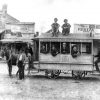
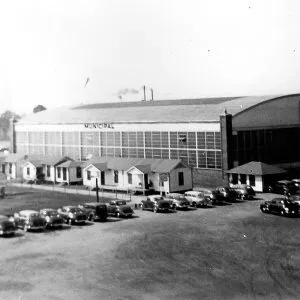
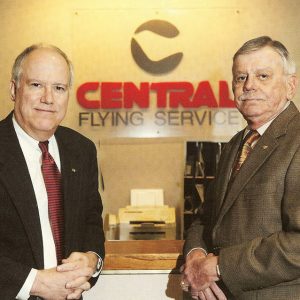
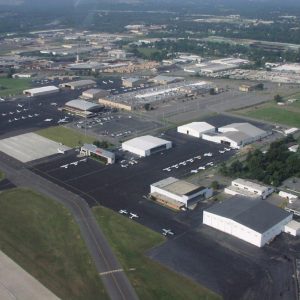
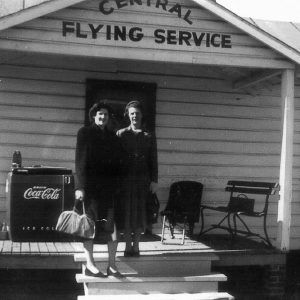
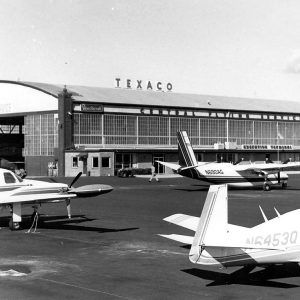
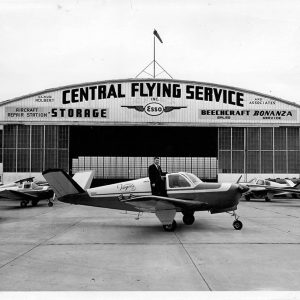






Comments
No comments on this entry yet.